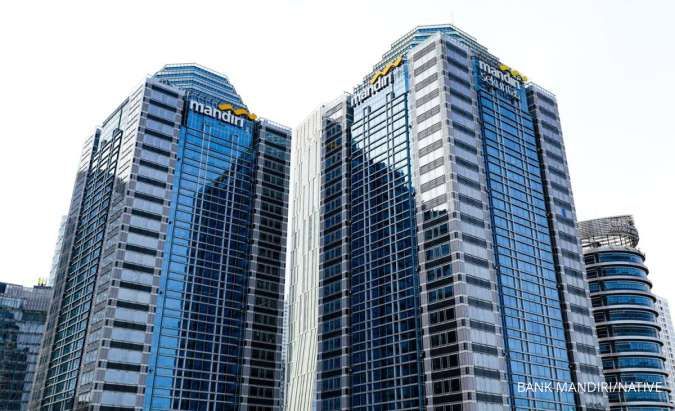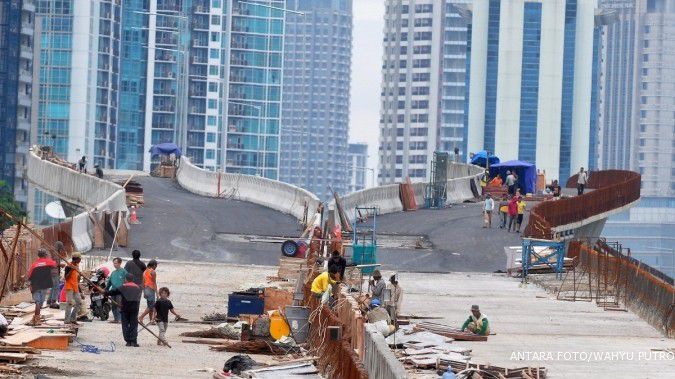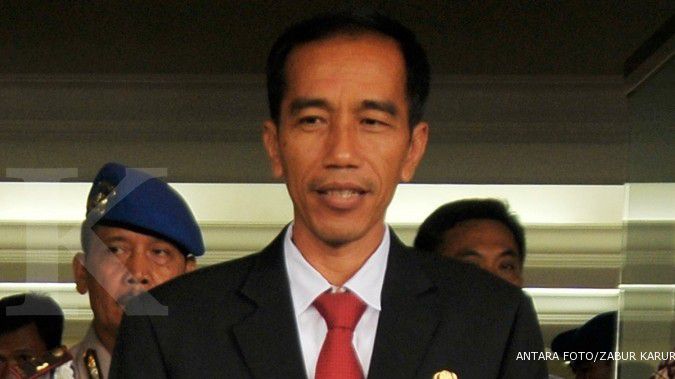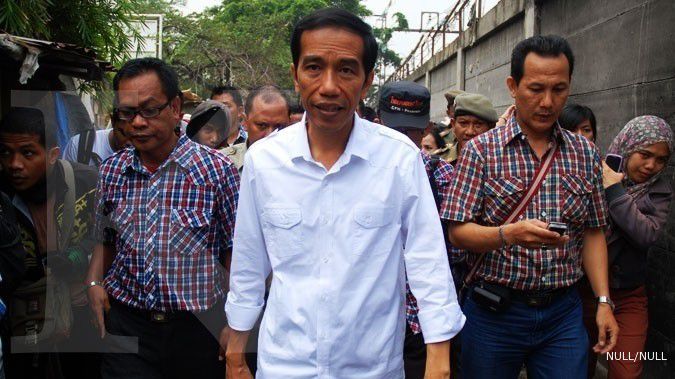JAKARTA. Governor Joko “Jokowi” Widodo said he would cancel a World Bank (WB) loan agreement that would have financed a massive dredging project in the capital.Under the joint project, which the Public Works Ministry and the Jakarta Public Works Agency initiated in 2008, the Jakarta Emergency Dredging Initiative (JEDI), or the Jakarta Urgent Flood Mitigation Project (JUMFP) as it is now known, would have dredged 13 rivers, including the Cakung River in East Jakarta; the Sunter and the Angke rivers in North Jakarta; and the Ciliwung River, with US$150 million in loans from the WB. Of the total sum, the Jakarta administration would receive $69 million and the Public Works Ministry $70 million.“We will cancel the loan agreement,” Jokowi told reporters at City Hall on Tuesday.The city administration, however, has yet to send a letter to the Public Works Ministry regarding the cancellation request.Jokowi declined to answer when pressed about the legal consequences the city administration might face should it cancel the loan agreement. Jokowi had protested the convoluted terms that came with the loan, which were deemed instrumental to the project’s current limbo.The contract stipulated that the city administration would need to follow the agreed and disclosed Resettlement Policy Framework and that the affected people must be consulted about the prepared Resettlement Plan and it must be approved by the WB.Public Works Ministry spokesman Danis H. Sumadilaga said that he could not discuss the legal consequences possibly faced by the city administration.“I should check [the agreement contract] first. This is an agreement between the WB and the Indonesian government. The agreement sees the central government and the city administration as one entity,” Danis told The Jakarta Post.Public Works Agency head Manggas Rudy Siahaan said, however, that the loan cancellation would not affect the dredging project.“We will carry out the project using the unspent budget from last year. We can insert the project in the revised city budget for 2013,” Manggas said, adding that he was upbeat the city administration could complete the project without the foreign loan. At the time of writing, the WB Indonesia had not replied to inquiries regarding the matter from the Post.Under the agreement, the city administration’s work would cover around 60 percent of the whole project, focusing on the normalization and dredging of the Ciliwung River, the Gunung Sahari Canal, the Melati Dam, the Gresik Waterway, the Cideng River, the Sentiong River, the Sunter Utara Dam, the Sunter Selatan Dam and the Sunter Timur Dam. The city would continue with the Grogol River, the Sekretaris Canal, the Kali Besar River, the Krukut Cideng Canal and the Krukut Kramat Canal. Meanwhile, the central government would work on the remaining 40 percent of the waterways; the Cengkareng Canal, the Sunter River, the Cideng Thamrin River, the Tanjungan River, the Angke Bawah River, the West Flood Canal and the Upper Sunter River. The capacity of the city’s waterways and dams had declined sharply due to the construction of homes — many being illegal shanties — along the river banks. (Sita W. Dewi/The Jakarta Post)
Jokowi backs off from WB loan agreement
JAKARTA. Governor Joko “Jokowi” Widodo said he would cancel a World Bank (WB) loan agreement that would have financed a massive dredging project in the capital.Under the joint project, which the Public Works Ministry and the Jakarta Public Works Agency initiated in 2008, the Jakarta Emergency Dredging Initiative (JEDI), or the Jakarta Urgent Flood Mitigation Project (JUMFP) as it is now known, would have dredged 13 rivers, including the Cakung River in East Jakarta; the Sunter and the Angke rivers in North Jakarta; and the Ciliwung River, with US$150 million in loans from the WB. Of the total sum, the Jakarta administration would receive $69 million and the Public Works Ministry $70 million.“We will cancel the loan agreement,” Jokowi told reporters at City Hall on Tuesday.The city administration, however, has yet to send a letter to the Public Works Ministry regarding the cancellation request.Jokowi declined to answer when pressed about the legal consequences the city administration might face should it cancel the loan agreement. Jokowi had protested the convoluted terms that came with the loan, which were deemed instrumental to the project’s current limbo.The contract stipulated that the city administration would need to follow the agreed and disclosed Resettlement Policy Framework and that the affected people must be consulted about the prepared Resettlement Plan and it must be approved by the WB.Public Works Ministry spokesman Danis H. Sumadilaga said that he could not discuss the legal consequences possibly faced by the city administration.“I should check [the agreement contract] first. This is an agreement between the WB and the Indonesian government. The agreement sees the central government and the city administration as one entity,” Danis told The Jakarta Post.Public Works Agency head Manggas Rudy Siahaan said, however, that the loan cancellation would not affect the dredging project.“We will carry out the project using the unspent budget from last year. We can insert the project in the revised city budget for 2013,” Manggas said, adding that he was upbeat the city administration could complete the project without the foreign loan. At the time of writing, the WB Indonesia had not replied to inquiries regarding the matter from the Post.Under the agreement, the city administration’s work would cover around 60 percent of the whole project, focusing on the normalization and dredging of the Ciliwung River, the Gunung Sahari Canal, the Melati Dam, the Gresik Waterway, the Cideng River, the Sentiong River, the Sunter Utara Dam, the Sunter Selatan Dam and the Sunter Timur Dam. The city would continue with the Grogol River, the Sekretaris Canal, the Kali Besar River, the Krukut Cideng Canal and the Krukut Kramat Canal. Meanwhile, the central government would work on the remaining 40 percent of the waterways; the Cengkareng Canal, the Sunter River, the Cideng Thamrin River, the Tanjungan River, the Angke Bawah River, the West Flood Canal and the Upper Sunter River. The capacity of the city’s waterways and dams had declined sharply due to the construction of homes — many being illegal shanties — along the river banks. (Sita W. Dewi/The Jakarta Post)





